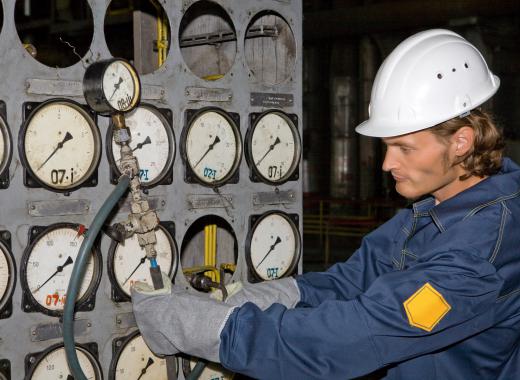Independent power producers (IPPs) are companies which produce electricity for sale to public utilities. An IPP is not a public utility, instead focusing on the generation of electricity, not the transmission of it. Some may sell to end users, depending on the energy policies and industry norms in the areas where they operate. It is not uncommon for independent power producers to pool their resources in a collective organization which is designed to help them negotiate the best prices with the utilities they sell to.
The prevalence of independent power producers varies around the world. In some nations, they are very common, and include private companies, cooperatives, and industrial facilities which sell excess power to the utilities they work with. It other regions, they are more rare, and operate on a smaller level. Some associations of producers focus on small regions, while others may span continents. Many are growing all the time by adding new facilities and services to their roster.

Also known as a non-utility generator (NUG), an independent power producer usually does not have transmission facilities. It can generate power using a variety of methods, but it must lease transmission facilities from a public utility, or the utility may construct transmission facilities and maintain them as part of the sales contract with the power producer. These companies generally have contracts with the utility or utilities they work with which spell out how much power they must generate, at what rate, and so on.
For utilities, buying power at wholesale prices through IPPs and reselling it to consumers can be cheaper than generating the power, maintaining a plant, and getting new plants online. It can also allow utilities to adjust their output to meet changing consumer needs, thereby avoiding blackouts and other problems. Independent power producers can supplement the grid to ensure that enough energy will always be available, even during periods of high demand or periods when generation facilities are forced to go offline for maintenance and other reasons.
The sale of electric power by independent power producers may be overseen by the government, which can regulate the rates at which power is sold in addition to regulating safety to confirm that these facilities do not operate in a dangerous way. In areas where electricity is not subject to government regulation, independent power producers point out that the competition generated by multiple producers helps to keep prices affordable for end users.
Ever since she began contributing to the site several years ago, Mary has embraced the exciting challenge of being a About Mechanics researcher and writer. Mary has a liberal arts degree from Goddard College and spends her free time reading, cooking, and exploring the great outdoors.

